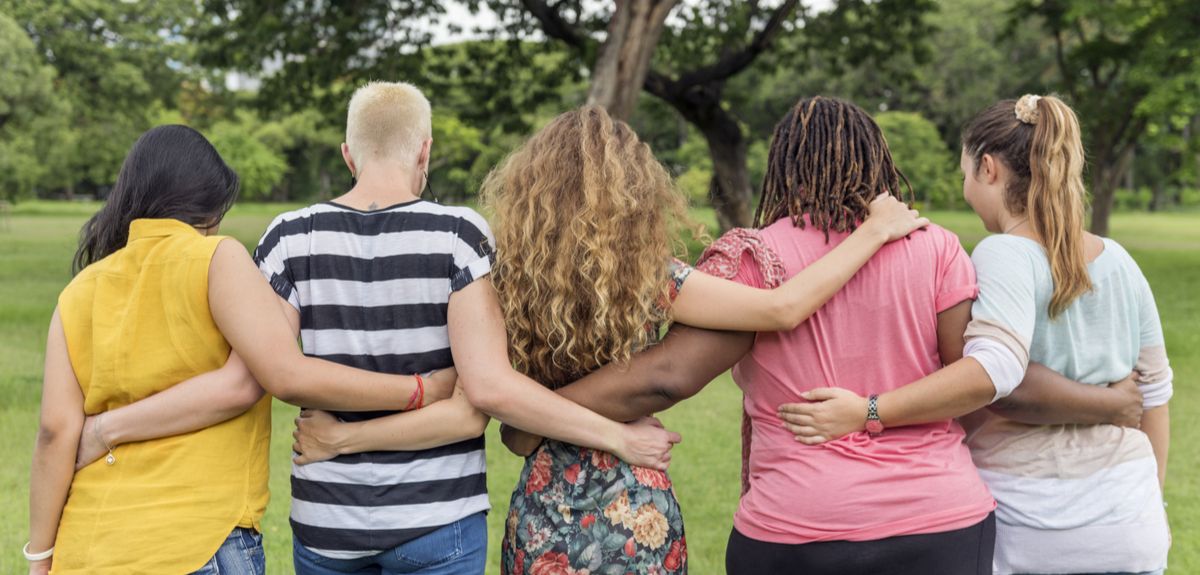
Band of mothers: Childbirth as a female bonding experience – Oxford research
Camaraderie and social bonds among mothers are strengthened by common experiences of a difficult childbirth, according to a new study from the University of Oxford.
Researchers found that the bonds between mothers, who had shared traumatic birth experiences, resembled those of soldiers who had fought together on the front lines. According to the study, ‘among postpartum mothers, those who thought that their childbirth was more painful than a typical childbirth experience reported greater identity fusion with [other] mothers who reported having had a very difficult birth.’
Bonds between mothers, who had shared traumatic birth experiences, resembled those of soldiers who had fought together on the front lines
Identity fusion is a particularly strong form of social glue in which one’s personal and group identities become ‘fused’ together. Oxford researcher, Dr Tara Tasuji, who spearheaded the study, explains that ruminating on the birthing experience played an important role in bonding postpartum mothers. She says, ‘Our study compared levels of fusion among mothers before and after childbirth. Eighty-nine mothers in the sample were pregnant with their firstborn, and 75 mothers had given birth to their firstborn up to six months prior to the time of data collection.’
Professor Elaine Reese, of the University of Otago, New Zealand, who was also a corresponding author on the study adds, ‘Most previous studies of fusion have focused on male groups, such as military personnel, revolutionary insurgents, and football fans. This is the first study to focus exclusively on the role of shared suffering among women specifically. And it focuses on a form of shared experience which only women can go through.’
Dr Valerie van Mulukom, a co-author and collaborator from Coventry University, says, ‘What makes this study so interesting is that we have looked at post-traumatic stress but also growth. While certain intense experiences, such as childbirth, can be traumatic that doesn’t mean the effects have to be detrimental; we can also learn and grow from our dysphoric experiences. And what we found is that higher levels of identity fusion helped mothers experience post-traumatic growth, further indicating the importance of social bonding in difficult experiences.’
Most previous studies of fusion have focused on male groups, such as military personnel, revolutionary insurgents, and football fans. This is the first study to focus exclusively on the role of shared suffering among women specifically. And it focuses on a form of shared experience which only women can go through
Senior author on the study, Professor Harvey Whitehouse, concludes, ‘Here in Oxford’s Centre for the Study of Social Cohesion, we have been studying how bands of brothers unite through defeat on battlegrounds and playing fields, but this is the first time we have shown that the same psychological processes can create a band of mothers.
‘Our hope is that this will lead to a cascade of practical benefits, from developing strategies for preventing or managing postnatal depression to harnessing the cohesion of mothers to challenge the roots of prejudice and violence in family life and child-rearing practices.’
 British children are growing taller but not for the right reasons
British children are growing taller but not for the right reasons
 Expert Comment: The war in the Gulf
Expert Comment: The war in the Gulf
 International Advisory Board to strengthen global leadership in primary care
International Advisory Board to strengthen global leadership in primary care
 Expert Comment: Church-to-mosque conversions grab headlines, but is funding the real crisis?
Expert Comment: Church-to-mosque conversions grab headlines, but is funding the real crisis?